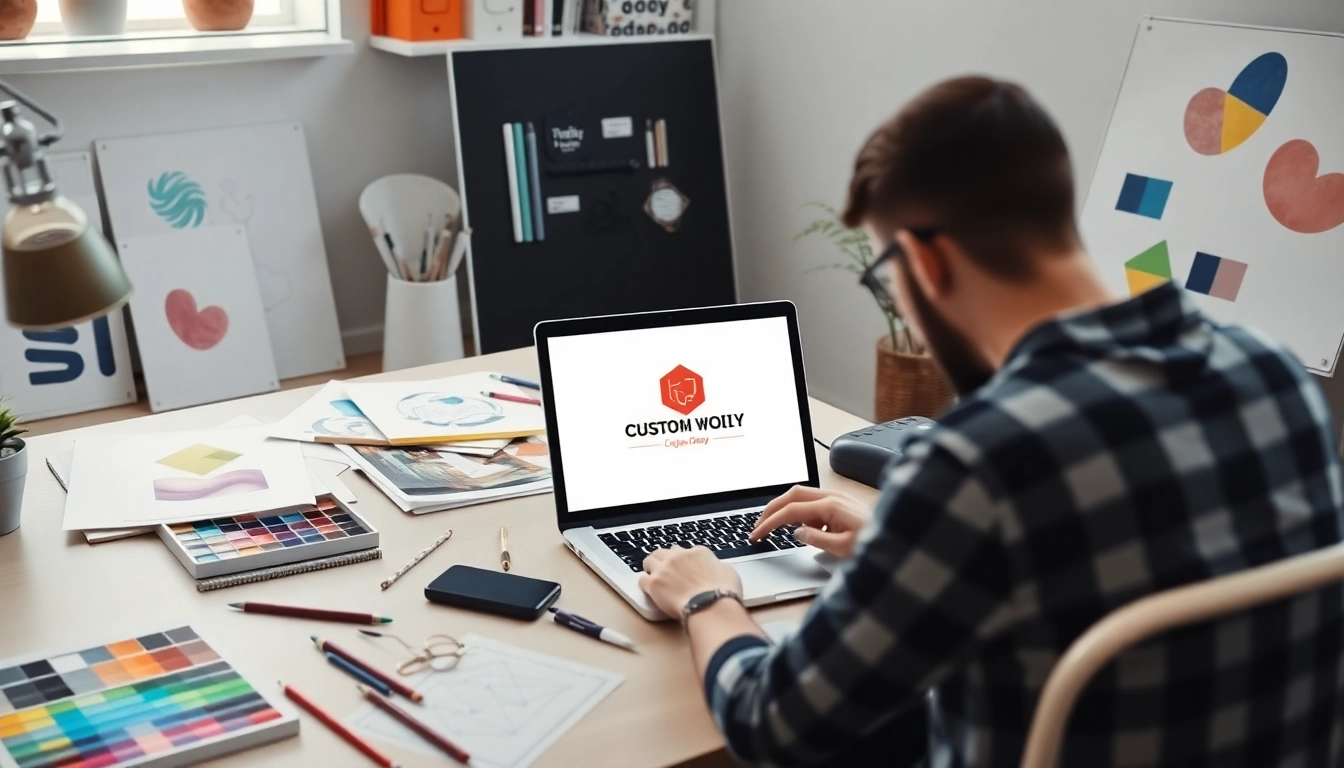
Elevate Your Brand with Professional Custom Logo Design Services
Understanding the Importance of Custom Logo Design
In today’s highly competitive marketplace, the first impression can be decisive. A well-crafted logo serves as a visual representation of your brand, conveying your values and mission to the public. Custom logo design is no longer an option but a necessity for businesses seeking to establish a strong identity. Utilizing a Custom Logo Design enhances brand recognition and can significantly impact customer perception and loyalty.
Why a Unique Logo Matters for Your Brand
A unique logo is critical because it distinguishes your brand from competitors. It encapsulates your brand’s identity and can elevate potential customers’ expectations. Think of companies like Nike, Apple, or Target; their logos are instantly recognizable and are often associated with specific qualities and values, resulting in consumer trust and loyalty.
Elements of Effective Logo Design
Creating an effective logo requires an understanding of its fundamental components. Here are key elements that contribute to successful logo design:
- Color: Colors evoke emotions and convey meanings. For instance, blue often symbolizes trust, whereas red can evoke excitement or urgency.
- Typography: The font type you choose communicates much about your brand’s personality. A modern sans-serif font suggests a contemporary approach, while a serif font can imply tradition and reliability.
- Simplicity: A simple design aids in recognition and versatility. Complicated logos can be less memorable and harder to reproduce across various media.
- Originality: Your logo should be unique to avoid confusion with competitors and legal issues.
Case Studies: Successful Custom Logo Transformations
Numerous businesses have transformed their brand image through effective logo redesigns. For example:
- Airbnb: Following its rebranding, the logo evolved into the “Bélo,” which signifies belonging, ultimately boosting user engagement.
- Instagram: Their shift from a complicated icon featuring a camera to a simplified, gradient-focused logo modernized their image and aligned with today’s design trends.
Steps to Create Your Custom Logo Design
Researching Competitors and Market Trends
The first step in creating a custom logo is comprehensive research. Assessing your competitors will allow you to identify what works within your industry and where there might be gaps. Tools like Canva and Adobe Express include libraries of logos for inspiration. Pay attention to:
- Competitor styles and colors to ensure differentiation.
- Trends in your niche to stay current while remaining original.
Choosing Colors and Fonts Wisely
Colors and typography play a magnificent role in logo effectiveness. Consider the psychological aspects of colors, matching them to your brand personality. For example:
- Email Marketing Tools: Often utilize blues to convey trust.
- Food Brands: May leverage reds and yellows to stimulate appetite.
Simultaneously, select a font that is legible and aligns with your brand ethos. The right combination creates a seamless visual experience.
Using Design Tools for Custom Logo Creation
Various online tools provide templates and resources for creating logos. Popular options include:
- Canva: User-friendly interface suitable for beginners.
- Fiverr: A marketplace that matches you with freelance designers.
- Tailor Brands: AI-driven logo maker for fast results.
Using these resources can facilitate creativity while maintaining professional quality.
Common Mistakes in Custom Logo Design
Ignoring Brand Identity and Values
One of the most prevalent mistakes brands make is failing to consider their core identity and values in logo design. The logo should encapsulate what a brand stands for and resonate with its target audience.
Overcomplicating the Design
While intricate designs may appear appealing, they often become less effective. A cluttered logo can confuse audiences and hinder recognition. Aim for simplicity while ensuring all elements serve a purpose.
Neglecting Versatility and Scalability
Your logo should function well across diverse platforms, from business cards to billboards, without losing identity. Ensure the design is scalable and looks good in various sizes and mediums.
Hiring Professionals vs. DIY Custom Logo Design
When to Consider Professional Designers
While DIY solutions can suffice for startups, a professional designer can offer expertise, deep understanding, and insights that help create a superior brand identity. It is wise to hire professionals when:
- You are unclear about your brand direction.
- Your business requires a logo that stands out significantly in a saturated market.
- You lack design skills or time.
Evaluating Freelance vs. Agency Services
Freelancers can provide a more personalized touch, often working closely with you throughout the design process. However, agencies may offer a broader range of services, including branding, marketing strategies, and access to a wider professional network. Consider the complexity of your needs and budget before deciding.
Budgeting for Quality Logo Design
Investing in a quality logo is essential. Prices can vary based on the designer’s experience, project complexity, and turnaround time. Freelancers might charge between $50 to $500, while agency services could range from $1,000 upwards. Allocating a budget that reflects your brand’s vision can lead to long-term benefits.
Trends in Custom Logo Design for 2024
Embracing Minimalism and Simplicity
The trend towards minimalism continues to dominate the design landscape in 2024. Brands like Apple have set a precedent, where less is more, allowing logos to convey messages without clutter.
Utilizing Dynamic Logo Concepts
Dynamic logos that adapt and change form based on context are gaining popularity. Companies such as Google use this tactic effectively, creating an engaging brand identity that captures attention.
Incorporating Eco-Friendly Design Practices
With increasing awareness of sustainability, brands are expected to reflect eco-conscious values through their branding, including logos. Brands might adopt earthy tones or use recycled materials that resonate with a growing audience concerned about environmental impact.
